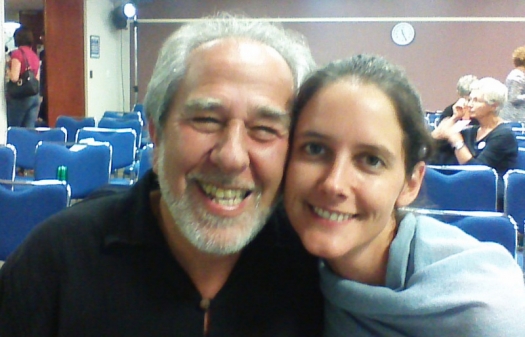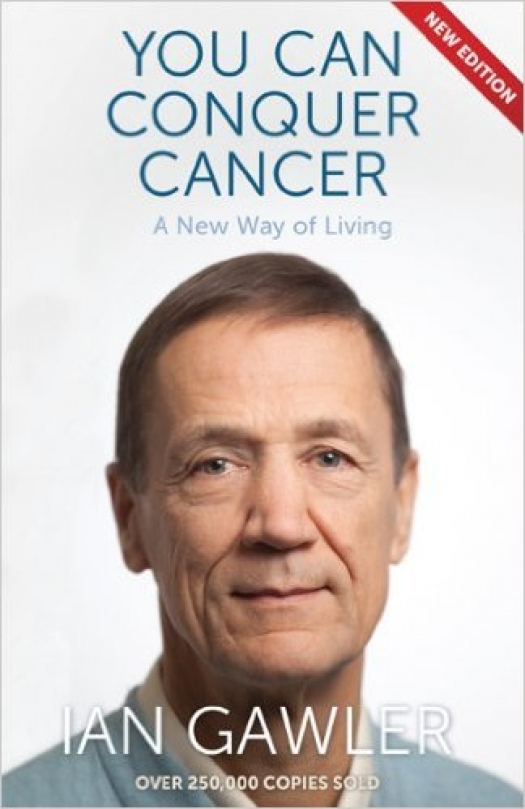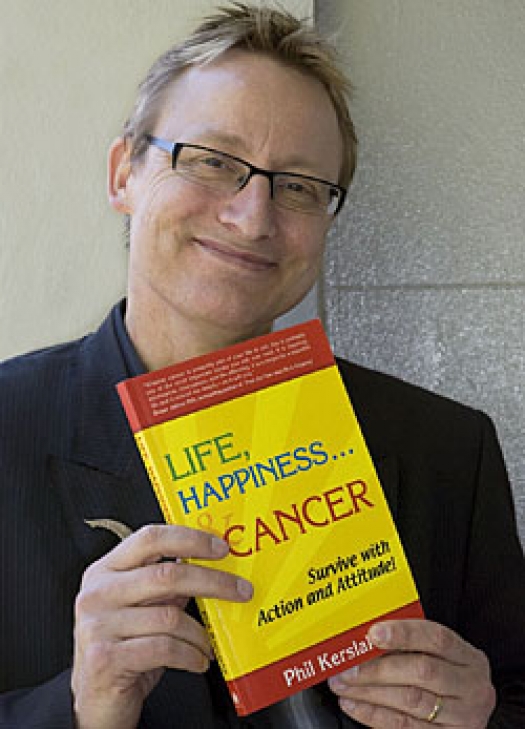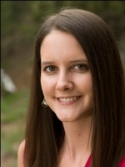brucelipton-kimberlyschipke.jpg

Photo courtesy of Kimberly Schipke
Dr. Bruce Lipton and Kimberly Schipke
The Holistic Cancer Congress hosted in Auckland, New Zealand on March 17th and 18th, 2013 was filled with all-star speakers from around the world.
Dr. Bruce Lipton opened the conference with an incredible lecture regarding epigenetics and the Biology of Belief (also the title of one of his recent books). He explained his studies into cell biology from the current model to a new model of biology based on perception rather than strictly biochemical. For example, the current medical model states that the body is a biochemical machine controlled by genes; however, after enucleation (removing the nucleus) the cell can still live which shows that the nucleus is not the brain of the cell but the reproductive system.
He has found that genes do not control biology but rather the reception of signals along the plasma membrane which causes proteins to change shape and communicate with the nucleus to activate genes. The DNA is only the blue print which is read when a signal triggers its action. The receptors on the plasma membrane create the awareness of the environment. The ability to change the awareness of the environment by physical sensation is perception. If you change the way you perceive the world, the receptors will change the requests from the nucleus. For this reason, he proposes that epigenetic control is above genetic control.
Not only do we inherit our family's DNA but also their style of thinking and learn their response patterns from an early age. He explained that until a child is 7 years of age, their brains are mostly operating in the theta range which is when the child is mainly pulling in information from its surroundings and learning behaviors from their parents and siblings. These core programs are what the subconscious mind pulls from when responding to actions.
If the person decides not to be stressed when traveling because their mother always was and perceive it as a fun adventure instead, then their cells stop sending out stress hormones as a response to that environment and instead send out endorphins. Emotions and symptoms are used as a feedback loop for the person to see what emotions continue to repeat within their body. The mind functions to create coherence between belief and reality which depends on a person's perception. Try changing a belief and see what happens. See possibility rather than limits. My favorite fortune cookie reminds me "Everything is impossible until somebody does it."
With respect to energy medicine, he also raised an interesting point where when molecules combine most of the energy is released as heat. The use of vibrational methods compared to the chemical thermodynamic model is 100x more efficient to heal the body without the release of thermal energy.
YouCanConquerCancerbkcvr.jpg

Dr. Ian Gawler, author of You Can Conquer Cancer
Dr. Ian Gawler, OAM who survived osteogenic sarcoma twice also spoke at the conference to share his experience of curing himself through meditation and various lifestyle changes. He gave credit to Dr. Ansley in Australia who helped him find relief using hypnotherapy rather than drugs.
He also shared some of research findings from the journal of Clinical Oncology in 2004 where the overall benefit of chemotherapy to 5 year survival was 2.3% in Australia. He stated that the high cost of drugs were delivering little to no benefit for the costs. He and his wife, Ruth, encourage healthcare providers to routinely discuss the use of complementary and alternative therapies with all cancer patients and survivors in an open and non-judgmental behavior.
He reported that the Cancer Council of Australia found that in 2012, with statistics for Australia only:
- Complementary and Alternative Medicine was responsible for:
- 656 Adverse Events
- 7 Deaths
- Chemotherapy was responsible for:
- 38,337 Adverse Events
- 1,014 Deaths
The old paradigm is authoritarian and fear-based with insular medicine; whereas, the new paradigm is consultative and hope-based with integrated medicine. He stated that chemotherapy is over-sold and over used while lifestyle is under rated and under used.
Dr. Ian Gawler's motto is "The best way to treat cancer is not to get it." By recommending lifestyle changes to the patient, it helps to empower them because they can do it themselves rather than depending solely on chemotherapy and radiation to cure them. Every day they can make changes to improve their own health without the need of a medical doctor present. He recommended everyone to educate themselves and have questions for the doctors to become aware of their own health and potential options. He also stressed the importance of nutrition and dietary changes which could help those with cancer.
Dr. Gawler reported a study published in the Science of Translational Medicine journal in 2012 by Lee and Volgo where they found fasting during chemotherapy increases the rate of tumor destruction. They stated that fasting causes normal cells to increase their protective resistance yet cancer cells become more vulnerable. Dr. Gawler also showed that 3 to 9 hours of exercise per week halved the risk of dying from cancer. He also shared that the higher the amount of dairy intake, the higher the risk of prostate cancer. For more information, you can read his book You Can Conquer Cancer or visit his websites: Dr. Ian Gawler, The Gawler Foundation , and Ian Gawler's blog: Out on a Limb.
philkerslakewithbook.jpg

Dr. Phil Kerslake, author of Life, Happiness... and Cancer: How to Survive with Action and Attitude!
Dr. Phil Kerslake was another presenter who has survived cancer seven times and was inspired by his own experience to study medicine. He shared his journey through failed treatments, poor results and prognoses which deflated his optimism. The physical changes from radiation and chemotherapy lowered his self-image and esteem. His relatives and friends avoided and patronized him where he felt few understood him and felt alienated.
By witnessing other people's cancer journey, it created heartache and fear of his own outcomes. He felt health professionals did not understand or acknowledge his needs which made him feel powerless and frustrated. He was troubled about his life, achievements and legacy which made him think about what he wanted to accomplish in this lifetime.
Since his remissions never held, he decided to live the best life he could with the illness and focused on the importance of resilience. Cancer and its treatment brought physical, psychological, emotional, social, economic, and spiritual trauma which affected his ability to heal.
The following are a list of things he felt contributed to his success in overcoming cancer:
- Optimism and hope
- Physical activity in and out of hospital
- Adequate sleep and rest
- Ate well to support needs at the time
- Avoided alcohol and never smoked
- Meditation, visualization, positive affirmations, self-hypnosis, hypnotherapy and prayer
- Played music which opened up feelings, eased tensions and allowed for expressive writing
- Enhanced immune system
- Removed amalgamations, used saunas, and began juicing
- Gained social support online and live to discuss coping methods
- Stretched boundaries and comfort zones – took free promotions and earned a degree
One of my favorites was his use of humor and creating a "laughter library" (as recommended by Norman Cousins) where he made a list of things which brought him joy. Even when he did not want to laugh, he made himself laugh and could find humor in everyday medical treatments
He ended his presentation with a fantastic quote by Bern Williams "Man never made any material as resilient as the human spirit." He is living evidence of that quote. To learn more about Phil's story and techniques, please read his book Life, Happiness... and Cancer: How to Survive with Action and Attitude!
Some of the other speakers included Liz Hart who introduced the use of Emotional Freedom Technique, or EFT, which includes tapping on various points of the body while stating mantras to reduce the emotional impact of the disease, treatment, and past traumatic memories, as well as manage stress. This technique has been shown to improve PTSD symptoms for American troops returning home from war.
Once the tapping method is taught to a person, they can treat themselves any time they want for free. Talk about affordable healthcare! For more information on EFT and energy psychology, please visit the Association for Comprehensive Energy Psychology website.
Pat Amistead was the first joyologist I had ever met and she had the whole conference center laughing along with her. People say laughter is the best medicine and she gave us all a double dose! She shared her experience of studying under Patch Adams and her use of joy in children's hospitals.
Her presentation was dramatic, emotional, and the smiles of the patients she has worked with were shared with everyone. She encourages doctors and hospitals to collaborate with comedians and introduce laughter generating activities to promote happiness in the patients. She said "Laughter is a trigger for hope in tough times." Thanks for the chuckles Pat! I feel better already.
Dr. Robin Kelly presented "Peace Talks to End the War on Cancer" where he discussed a positive approach towards cancer and encouraged more natural diets and environments. He also shared his insights and reiterated the importance of epigenetics and how consciousness can help change perception thus health. He has written several books including The Human Antennae and The Human Hologram.
The speakers were joined together for a panel discussion where they stressed the importance of following up with patients on the emotional trauma of cancer diagnosis to ensure they are handling the news well and recommend support groups. They also encouraged doctors to explore and discuss all treatment options including integrative care with their patients, as well as, more emphasis on nutrition, detoxifying the body, and joy.
The Holistic Cancer Congress was a great success with the conference center at maximum capacity and standing room only in the back. It was really encouraging to see the support and openness of the New Zealand community.
I would like to thank John Coombs and his team at Global Health Clinics for hosting me throughout the conference. I truly enjoyed my time spent with his incredibly talented and open-hearted staff and all of their healing and support. To find out more about the treatments available at their clinic, please visit: Global Health Clinics.


